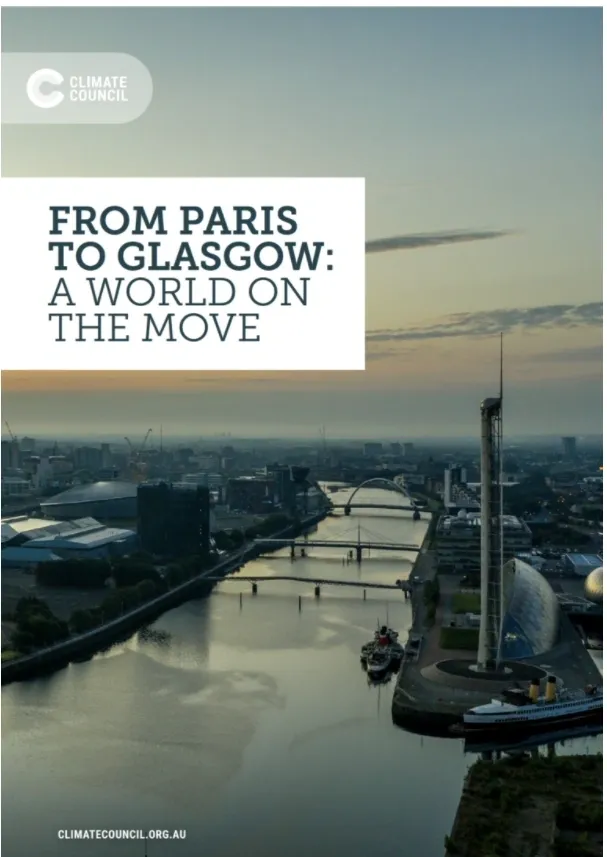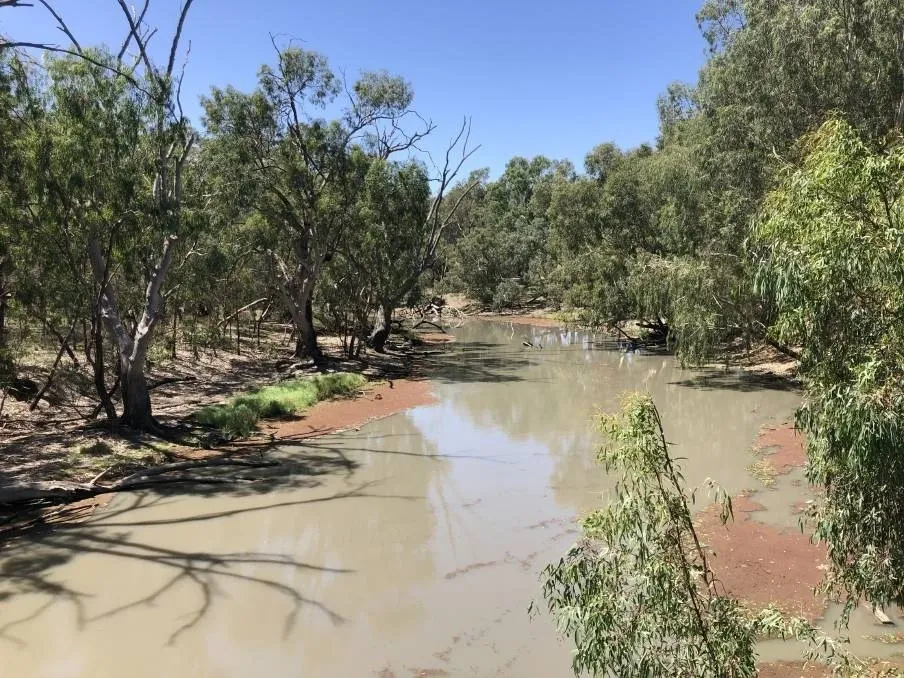
Australia is the worst performing of all developed countries when it comes to cutting greenhouse gas emissions and moving beyond fossil fuels according to a new report from the Climate Council.
The report – From Paris to Glasgow – A World on the Move – concludes that Australia is being left behind, and facing unprecedented international pressure from our allies, security partners and neighbours to do better.
“A commitment and plan for rapidly cutting our emissions this decade will unlock investment, grow new export industries and create new jobs in our regions thanks to our world-class renewable energy resources and enviable mineral reserves,” according to the Climate Council.
Here is a summary of the new report’s key findings and you can find the whole report here.
Key findings:
1. This year marks a defining moment in the world’s response to climate change. Avoiding climate catastrophe requires all countries to close the gap between what’s required and what’s been committed, by cutting their emissions faster and more substantially this decade.
- The Paris Agreement was the first binding and universal agreement for international cooperation on climate change. It commits all countries to limit global warming to well below 2°C and pursue efforts to limit it to 1.5°C, as breaching these thresholds would prove disastrous for humanity.
- Since then, Australia’s strategic allies and biggest trading partners have substantially strengthened their commitments. In contrast, Australia is standing still and risks missing out on the economic opportunities of the global energy transition.
- Despite these new climate pledges and significant international momentum, there remains a major shortfall between what’s being promised and the pace of action required. Alongside other countries, Australia must do its part to help close this gap at the next major UN climate talks in Glasgow.
2. By strengthening our climate commitments and actions this decade, Australia can have an outsized and positive influence on what happens next around the world.
- Australia is a major emitter in its own right and one of the world’s largest exporters of fossil fuels. By slashing its domestic emissions, and using its natural advantages in renewable energy to support the global energy transition, Australia can play a major role in the world’s response to the climate crisis.
- The Climate Council has calculated that Australia should reduce its emissions by 75% (below 2005 levels) by 2030 and achieve net zero by 2035. As a first step, Australia should match the updated commitments of our key allies (including the US and the UK) and pledge before Glasgow to at least halve national emissions this decade.
- To ensure this occurs, Australia needs a national plan to rapidly decarbonise our electricity and transport sectors, protect and restore our ecosystems, and support communities that are transitioning to new, clean industries.
- Supporting climate action in developing countries is a critical component of international cooperation on climate change. Australia should follow the US in doubling its current climate finance contribution, and pledge to provide at least AU$3 billion over 2021-2025 towards the shared international goal of providing US$100 billion a year.
3. Australia is the worst performing of all developed countries when it comes to cutting greenhouse gas emissions and moving beyond fossil fuels.
- Australia ranks dead last among comparable nations for addressing the climate challenge at its source – by cutting emissions.
- Australia is a fossil fuel giant, with coal and gas industries that are among the world’s biggest drivers of climate change. The Climate Council’s ranking system judges Australia as the equal worst performer among comparable nations for fossil fuel extraction and use, taking into account both exports and domestic consumption.
- Emissions in the sectors that matter most have increased in Australia. For example, electricity emissions have increased by around a third since 1990, while transport emissions have grown by more than half.
- The Australian government is trailing state and territory governments, Australian businesses and investors, and the public who are all hungry for further climate action. Climate leadership from states and territories is showing us what works, and the many benefits that decarbonising our economy delivers.
4. There has been a rapid and irreversible shift in the global politics surrounding climate change. Australia is being left behind and must catch up if it is to reap the economic and geostrategic benefits of taking stronger action.
- Climate change is now a strategic priority for the world’s major powers including the UK, EU, US and China, as they race to gain advantage in the global energy transition. 2021 marks climate change moving to the centre of global geopolitics, with Australia’s major allies and trading partners integrating this into their defence and strategic planning, foreign policy and diplomacy.
- Almost all developed countries have substantially strengthened their 2030 targets ahead of Glasgow and have committed to net zero emissions by 2050. The Group of 7, consisting of the world’s largest developed economies, has committed to at least halving its emissions this decade.
- Australia is under unprecedented international pressure to strengthen its climate commitments. For the first time, Australia’s traditional allies and closest security partners, as well as our neighbours, are universally and explicitly calling for Australia to lift its 2030 emission reduction target.
- A commitment and plan for rapidly cutting our emissions this decade will unlock investment and create new jobs in renewable energy and clean industries; particularly in regional areas. With world-class renewable energy resources and enviable mineral reserves needed to drive the global energy transition, Australia has the potential to grow new export industries that far exceed the value of our current fossil fuel exports.


